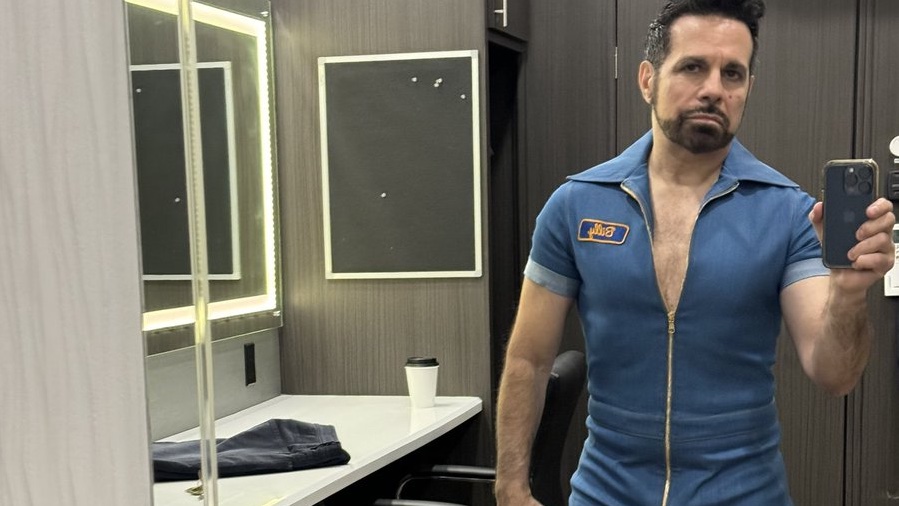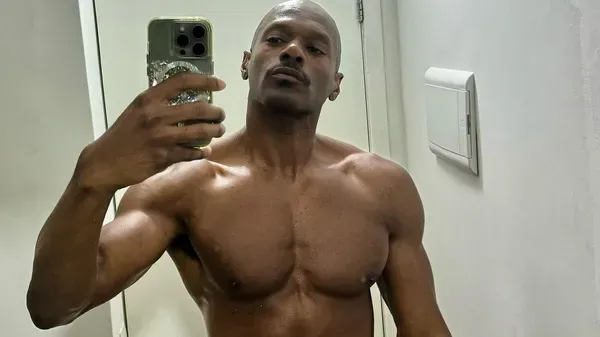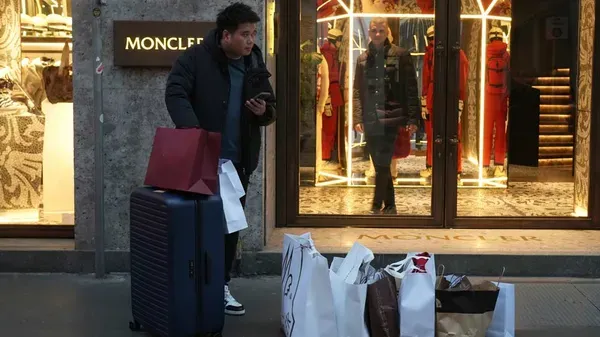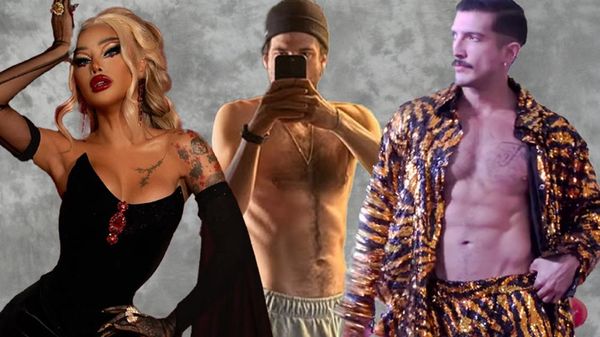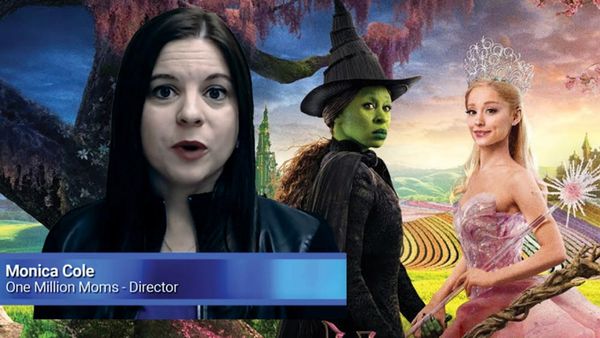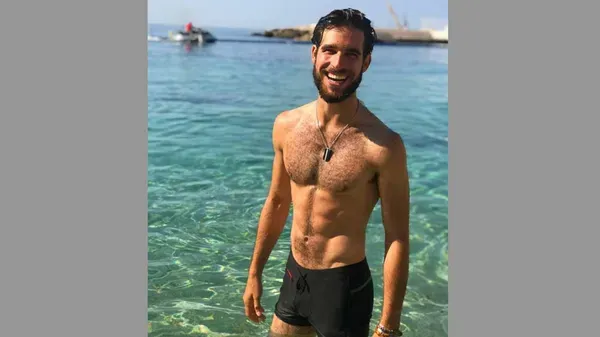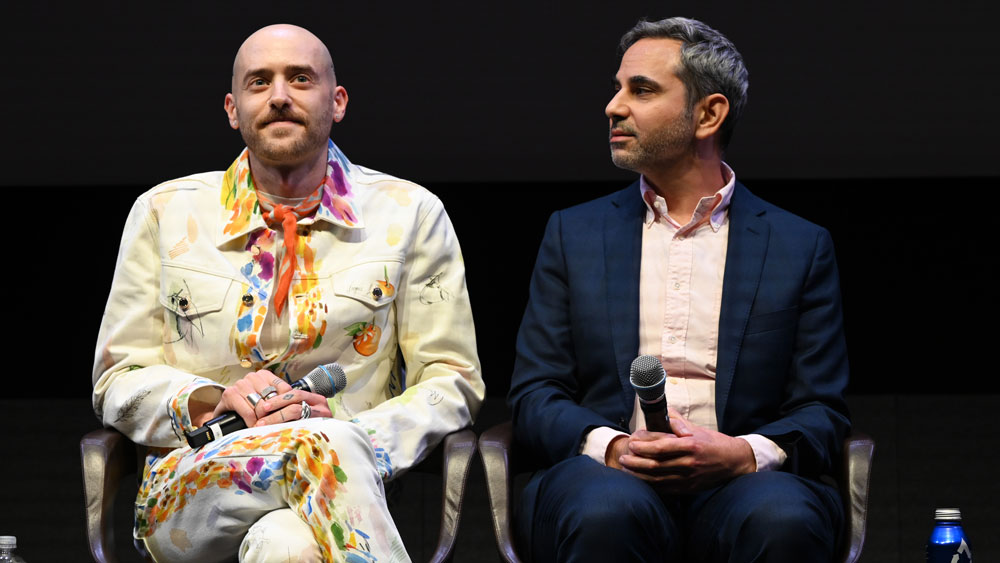
July 20, 2023
With HBO Doc Series, Director Anthony Caronna Takes Holistic Approach to True Crime Drama
Steve Duffy READ TIME: 8 MIN.
When asked to direct a true crime doc on queer murders in NYC in the 1990s, director Anthony Caronna declined; but then he took a more holistic approach to doc storytelling.
Director Anthony Caronna was a fan of "Last Call: A True Story of Love, Lust, and Murder in Queer New York," Elon Green's 2021 account of a string of gay murders in the 1980s, when he first read it. But when asked to direct a documentary on the book, he passed. He told Variety: "I loved the book. But I passed on the project because I wasn't interested at that time in doing true crime. My biggest concern was re-victimizing the community and possibly working against the community in a way."
But later, producer Howard Gertler approached Caronna with a new take on the project that was "a chance for this to be an activist story and a social-justice story wrapped in true crime," Caronna told Vulture. And instead of concentrating on the perpetrator, Gertler and Caronna focused on the victims and the criminal process. "It was the most complicated storytelling I could ever imagine doing," the director continued. "We're trying to thread this needle, and we're trying to be so careful telling this queer-activism story and also this investigation story and also giving a fully fleshed idea of these victims."
Over the four episode arc, Caronna follows the crimes – four gruesome murders in the New York City area in the early 1990s and their biased investigations by law enforcement. The film reveals how those biases hindered the police's approach to the case, which wasn't solved until 10 years later when Richard Rogers – dubbed "The Last Call Killer" – was caught. But that's not the end of the story that Caronna tells, which puts the emphasis on the victims, not the perp.
EDGE spoke with Caronna and Gertler about his series, "Last Call: When A Serial Killer Stalked Queer New York," beginning with why Caronna changed his mind about directing the series.
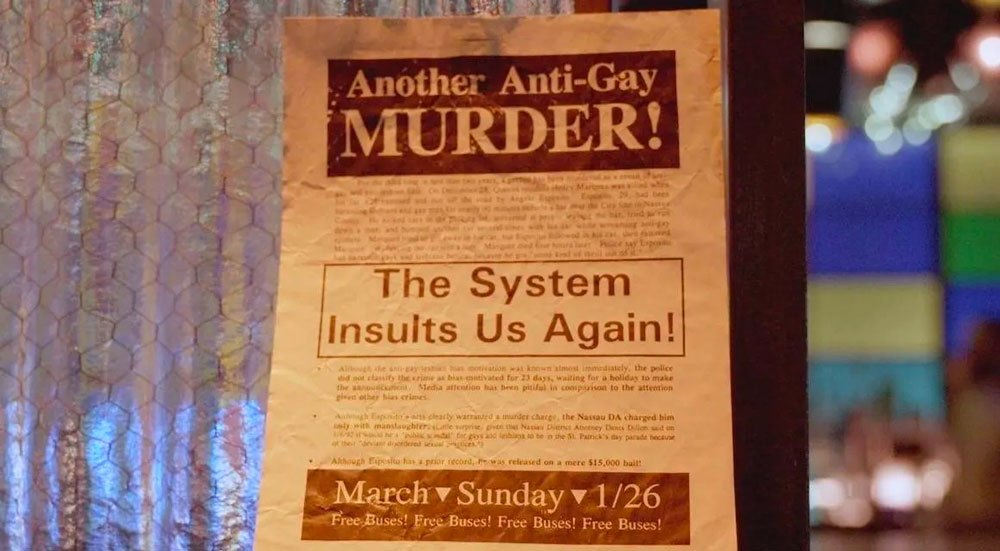
Source: HBO
EDGE: Why did you feel it was important to tell this story?
Anthony Caronna: I had originally received this book in manuscript form years ago and I was asked to direct it as a series. I read the book and I loved it, but I passed on it, because I wasn't interested in doing true crime. I also very worried about re-victimizing the community. Then, about a year later, Howard asked me to go to dinner and said he was thinking about working on this project called "Last Call: When A Serial Killer Stalked Queer New York," and that he saw the possibility to do it as an activist story and a story about the anti-queer violence movement. I re-read the book from that lens, and immediately it was obvious to me that we could do that. It then became an important story that nobody has told in the way that it was clear that Howard and I could tell it. I don't think anybody really has told it from this perspective.
EDGE: Did Elon Green, author of "Last Call: A True Story of Love, Lust, and Murder in Queer New York," have any role in this work?
HG: Yes, Elon's an executive producer, and they were a resource and connected us to the subjects. We interviewed some of the same subjects who were in the book, but we also did our own outreach and found people who were part of the story who were not in the book – the family of Anthony Marrero. We have Antonio Marrero, Anthony's grandnephew, and his family. They hadn't sat for the book, so we were able to get a new angle to the story.
EDGE: How did the history of what was taking place within the queer community influence your storytelling?
Anthony Caronna: It influenced this story because it is a story about anti-queer violence. It's a story of queer violence and violence being enacted on the queer community and the queer community fighting to be recognized and fighting for help. I think we saw it as an opportunity to tell a much deeper and wider story about the anti-queer violence movement of the early 1990s. As much fear as I had in doing true crime, it provided a real Trojan horse to allow for something that everybody watches. Everybody in the country loves true crime. It is a very popular genre, but we got to wrap it in this much deeper and more important story. I'm hoping that people like my dad, who might not necessarily turn on something specifically about anti-queer violence but will turn it on because it is a true crime story, [will watch it].
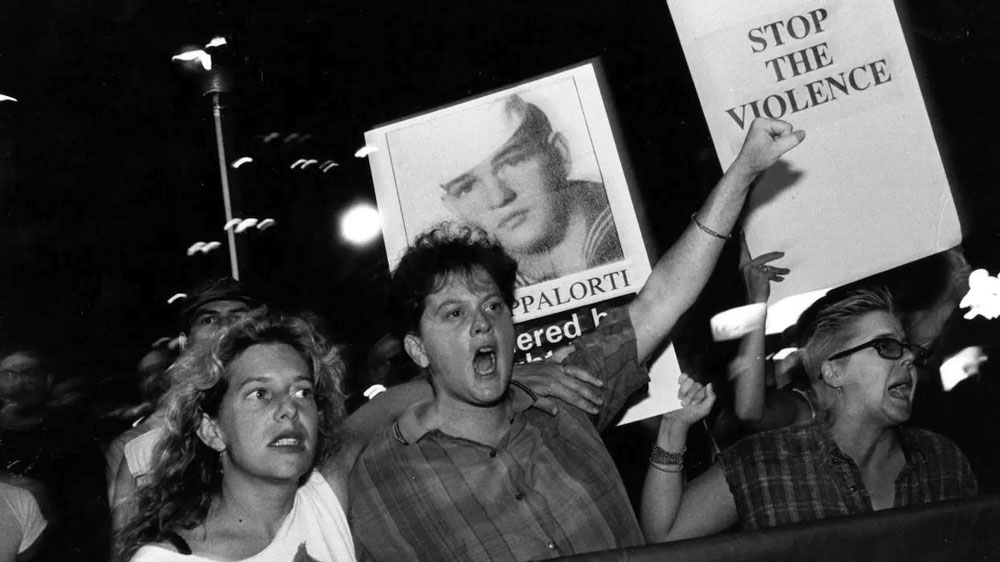
Source: HBO
EDGE: When telling the story of this horrific crime, how did you decide which details are necessary to tell your story?
Howard Gertler: That's a great question. We had two parameters set up for ourselves and with Story Syndicate, our producing partners, and HBO: We did not want to tell the story that would re-traumatize the family members of the victims or traumatize the LGBTQ community. For example, in terms of the level of detail that we go into the crimes themselves, we use restraint, both in how explicitly we describe them and in what we show in photos, both graphically and visually. We wanted to give just enough to give a sense of the brutality, so the viewer understands how horrible these crimes are. There is a certain point where you don't need to go any deeper for people to understand how terrible it was.
EDGE: Were any of the family members of the victims apprehensive about sharing their stories?
Anthony Caronna: Yes, I think for all the reasons I was apprehensive from the start. They were doubly as apprehensive because they see true crime on TV, and they see the ways that it can be spun into entertainment. I think that they were very apprehensive in us doing that. Our stance from the beginning was that we were never going to push any of the subjects too hard in interviews or to push them to sit down for an interview. We just let them guide the conversations, and that helps them feel comfortable with us and talking about it.
EDGE: Like the book, you place an emphasis on the lives of the victims. Were you able to speak to Richard, or was there even a need to?
Anthony Caronna: From the start, for Howard and me, it was not the Richard Rogers story. I don't know that either of us would've necessarily wanted to tell the perpetrator's story anyway. In the beginning, we did reach out to him, but then the further we got along in the process, and the more we talked with the families, we really found what the story was that we wanted to tell, and it was not his story. We never wanted to tell his story, and I don't think there was anything that we learned over the course of two years of making this that would have changed our minds. I think the only aspect of his life [we addressed] was to talk about how he got access to queer spaces, how he manipulated the system, and how he kept getting away with these crimes.
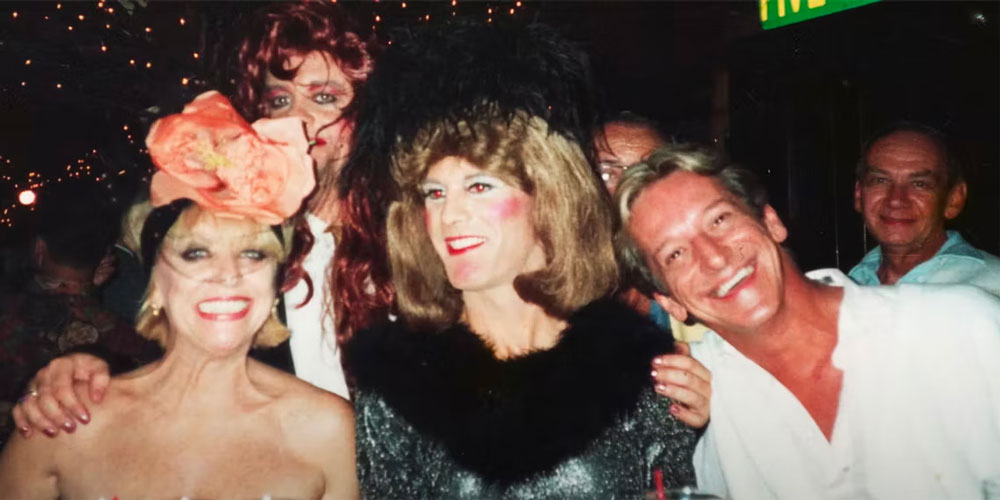
Source: HBO
EDGE: What I found striking was that the "gay panic" defense is still legal in 34 states. What does this tell us about the criminal justice system, and what needs to be done to change it?
Anthony Caronna: So much. It's not even just the criminal justice system, it's every system. I think there needs to be an overhaul of everything. Matt Foreman and Bea Hanson are the heroes of our series. Bea has one of the final lines of Episode Four, where she says, "After all of the things that happened to the queer community, we're still together in this and we have a responsibility to each other, and that's a joyful thing." I think that no matter how bad things are, I do take solace in knowing that we as a community always have each other's back, and the more we push back, hopefully, change can actually happen.
EDGE: What moment or story from this work stuck out to you the most?
Anthony Caronna: I think Matt Foreman says it in Episode One. He talks about how AIDS and violence were running parallel at the same time, and that straight America and people outside of the queer community just didn't step up against anti-queer violence. I hope that people watch it and people that maybe didn't think to step up, or didn't know how to or didn't think it was important, will step up and will do something and will help the queer community, because we could definitely use it right now.
Howard Gertler: I would say, in addition to that – I know Anthony and I both feel this way – is a deeper understanding and appreciation for the lives of the victims. They all had very full but complicated lives. They grappled with their sexuality in different ways, and were in different stages of their lives. In the victimization, the re-victimization that sometimes happened to these victims, and the press at the time of the murders, it was hard to see that. Now we've provided a venue to be able to tell those stories.
"Last Call: When A Serial Killer Stalked Queer New York " is streaming on Max.
